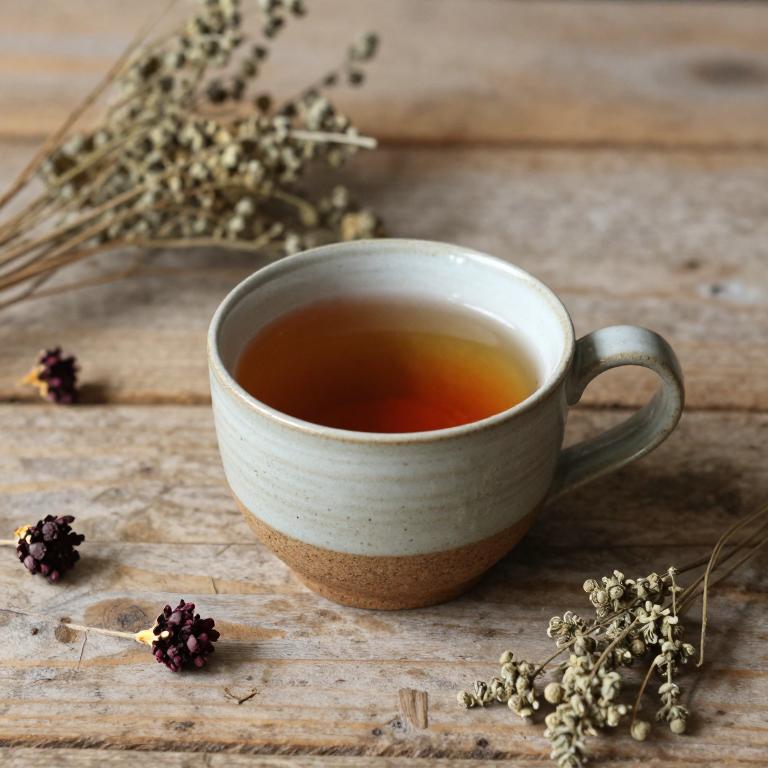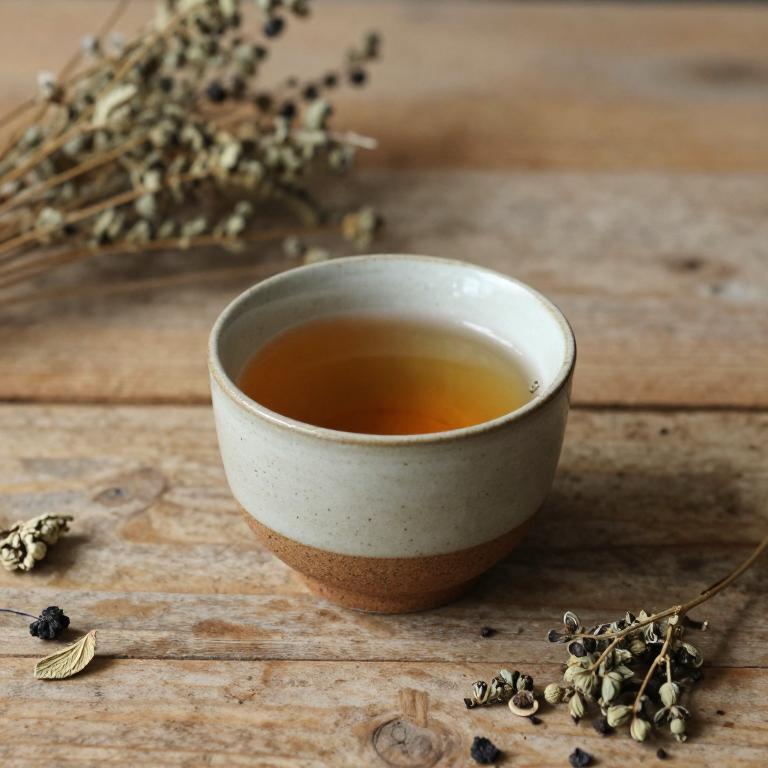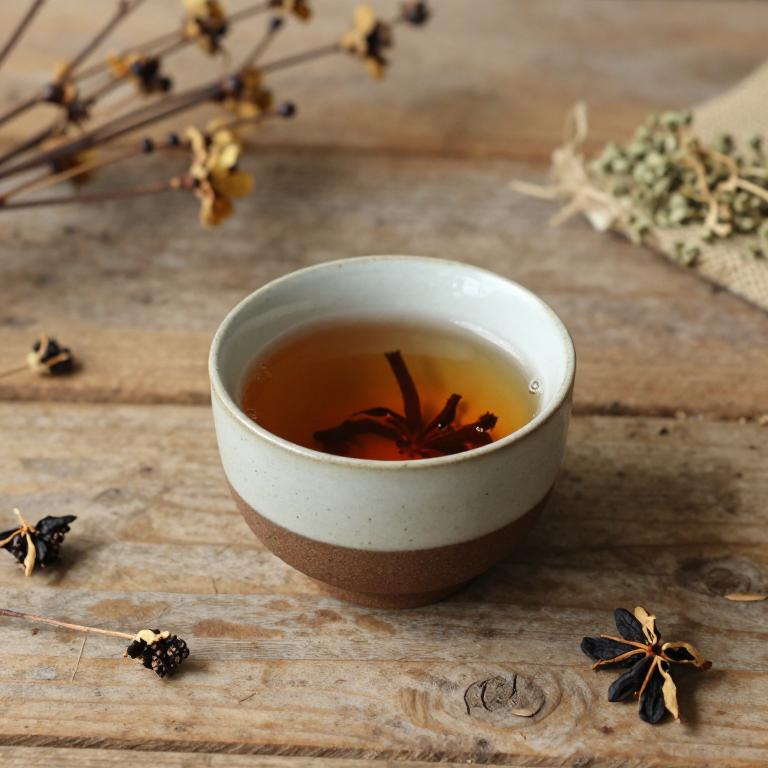10 Best Herbal Teas For Hot Flashes

Herbal teas are a natural and soothing remedy for managing hot flashes, a common symptom of menopause.
Popular herbs such as black cohosh, red clover, and sage have been traditionally used to help regulate body temperature and reduce the frequency and intensity of hot flashes. These teas are often preferred over hormone replacement therapy due to their mild side effect profile and accessibility. Many women find that regular consumption of these herbal infusions provides relief and improves overall well-being during menopause.
However, it is advisable to consult a healthcare provider before starting any herbal regimen to ensure safety and effectiveness.
Table of Contents
- 1. Chaste tree (Vitex agnus-castus)
- 2. Black cohosh (Cimicifuga racemosa)
- 3. Licorice (Glycyrrhiza glabra)
- 4. Echinacea (Echinacea purpurea)
- 5. Salvia (Salvia officinalis)
- 6. Stinging nettle (Urtica dioica)
- 7. Cabbage palm (Sabal serrulata)
- 8. European plum (Prunus domestica)
- 9. Field horsetail (Equisetum arvense)
- 10. Black cherry (Prunus serotina)
1. Chaste tree (Vitex agnus-castus)

Vitex agnus-castus, commonly known as chasteberry, is a herbal remedy that has been traditionally used to support hormonal balance and alleviate symptoms of menopause, including hot flashes.
This herb is believed to influence the hypothalamus and pituitary gland, potentially modulating estrogen and progesterone levels in the body. Herbal teas made from vitex agnus-castus are often consumed regularly to help reduce the frequency and intensity of hot flashes. While scientific evidence supporting its efficacy is limited, many women report positive effects when using chasteberry as part of a holistic approach to managing menopausal symptoms.
As with any herbal supplement, it is advisable to consult a healthcare provider before use, especially for those with existing medical conditions or taking other medications.
2. Black cohosh (Cimicifuga racemosa)

Cimicifuga racemosa, commonly known as black cohosh, is a popular herbal remedy used to alleviate menopausal symptoms, particularly hot flashes.
Studies suggest that it may work by modulating estrogen receptors in the brain, helping to regulate body temperature and reduce the frequency and intensity of hot flashes. While it is generally considered safe for short-term use, it is important to consult a healthcare provider before starting any herbal regimen, especially for women with a history of hormone-sensitive conditions. Herbal teas made from Cimicifuga racemosa are often preferred over standardized supplements for their natural composition and mild flavor.
However, the effectiveness of black cohosh can vary, and it is typically recommended as a complementary therapy rather than a standalone treatment for menopausal symptoms.
3. Licorice (Glycyrrhiza glabra)

Glycyrrhiza glabra, commonly known as licorice root, has been traditionally used in herbal medicine for its potential benefits in managing symptoms of menopause, including hot flashes.
The herb contains compounds like glycyrrhizin and flavonoids, which may help regulate hormonal balance and reduce the frequency and intensity of hot flashes. Studies suggest that licorice root may act as a natural estrogen modulator, supporting the body’s natural hormonal processes during menopause. However, it is important to note that excessive consumption of licorice root can lead to side effects such as high blood pressure due to its effect on the adrenal glands.
As with any herbal remedy, it is advisable to consult a healthcare provider before incorporating licorice root tea into a menopause management plan.
4. Echinacea (Echinacea purpurea)

Echinacea purpurea, commonly known as purple coneflower, is a popular herbal remedy often used in teas to support immune health.
While it is traditionally valued for its immune-boosting properties, some studies suggest it may also help alleviate symptoms of menopause, including hot flashes. The herb contains compounds like flavonoids and polysaccharides, which are believed to have anti-inflammatory and antioxidant effects that may contribute to its potential benefits. However, more research is needed to confirm its effectiveness specifically for hot flashes.
When considering echinacea tea for this purpose, it is advisable to consult with a healthcare provider, especially for individuals with existing health conditions or those taking other medications.
5. Salvia (Salvia officinalis)

Salvia officinalis, commonly known as sage, has been traditionally used in herbal teas to help alleviate symptoms of hot flashes, particularly in women experiencing menopause.
The tea is believed to contain compounds such as rosmarinic acid and flavonoids, which may help regulate hormonal imbalances and reduce body temperature. Studies suggest that sage may act as a natural estrogen modulator, supporting hormonal equilibrium and reducing the frequency and intensity of hot flashes. While more research is needed, many women report feeling relief from symptoms after incorporating sage tea into their daily routine.
As with any herbal remedy, it is advisable to consult a healthcare provider before use, especially for those with existing health conditions or taking medications.
6. Stinging nettle (Urtica dioica)

Urtica dioica, commonly known as stinging nettle, is a herbal remedy that has been traditionally used to alleviate symptoms of menopause, including hot flashes.
When prepared as a herbal tea, stinging nettle is believed to help regulate hormonal imbalances by supporting the body's natural processes. The tea is often consumed regularly to reduce the frequency and intensity of hot flashes, offering a natural alternative to conventional treatments. It is rich in minerals such as calcium, iron, and magnesium, which may contribute to its overall health benefits.
However, it is important to consult with a healthcare provider before using stinging nettle tea, especially for individuals with existing medical conditions or those taking other medications.
7. Cabbage palm (Sabal serrulata)

Sabal serrulata, also known as the cabbage palm, is a traditional herbal remedy often used in the form of tea to help manage menopausal symptoms such as hot flashes.
The plant contains compounds like saponins and alkaloids that may support hormonal balance and reduce the frequency and intensity of hot flashes. While some studies suggest it may have mild estrogenic effects, more research is needed to fully understand its efficacy and safety. Herbal teas made from Sabal serrulata are typically prepared by steeping the dried leaves in hot water, and they are often consumed as part of a holistic approach to menopause management.
As with any herbal remedy, it is advisable to consult a healthcare provider before use, especially for individuals with existing medical conditions or those taking other medications.
8. European plum (Prunus domestica)

Prunus domestica, commonly known as the European blackberry or blackthorn, has been traditionally used in herbal teas to help alleviate symptoms of hot flashes, particularly in women undergoing menopause.
While blackthorn berries are not typically consumed raw due to their tart flavor and high levels of tannins, they can be used in herbal infusions when properly prepared. These teas are believed to support hormonal balance and may help reduce the frequency and intensity of hot flashes due to their antioxidant and anti-inflammatory properties. However, it is important to note that more research is needed to fully understand the efficacy and safety of Prunus domestica for this purpose.
As with any herbal remedy, it is advisable to consult with a healthcare provider before incorporating it into a treatment plan for hot flashes.
9. Field horsetail (Equisetum arvense)

Equisetum arvense, commonly known as horsetail, is a traditional herb that has been used in herbal teas to help alleviate symptoms of hot flashes, particularly in women undergoing menopause.
The plant is rich in silica, antioxidants, and other bioactive compounds that may support hormonal balance and reduce the intensity of hot flashes. When brewed into a herbal tea, horsetail is often combined with other herbs like black cohosh or red clover to enhance its efficacy. However, it is important to note that while some studies suggest potential benefits, more research is needed to fully understand its effects on hot flashes.
As with any herbal remedy, it is advisable to consult with a healthcare professional before incorporating horsetail tea into a treatment regimen.
10. Black cherry (Prunus serotina)

Prunus serotina, commonly known as black cherry, has been explored for its potential benefits in alleviating hot flashes, a common symptom of menopause.
While not as widely studied as other herbs like black cohosh or red clover, some preliminary research suggests that compounds in black cherry may help regulate hormonal fluctuations and reduce vasomotor symptoms. The herb is believed to contain phytoestrogens and other bioactive compounds that may support hormonal balance in the body. However, more clinical studies are needed to confirm its efficacy and safety for use in herbal teas.
When considering Prunus serotina for hot flashes, it is important to consult with a healthcare provider to ensure it is appropriate for individual health conditions.